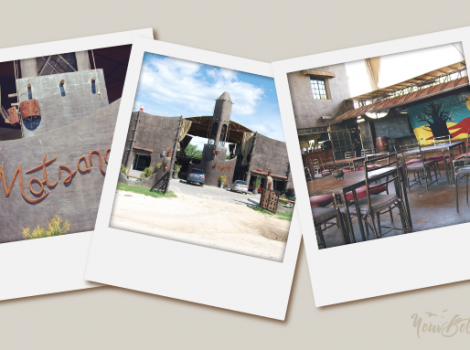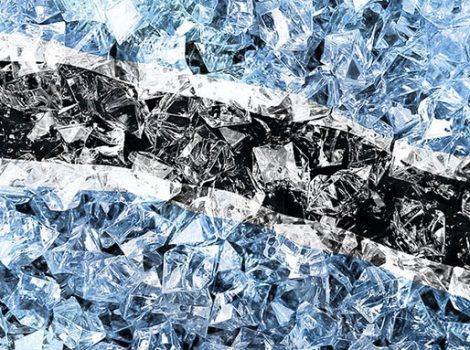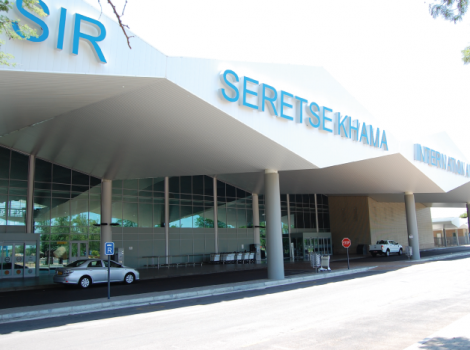For a very long time, Botswana water was always considered safe to drink straight out of the tap. However, it would appear that that is now up for debate, with the Botswana Gazette even recently running a damning piece titled “Drink Gaborone Tap Water at Your Own Risk-Experts” (October 28 2016 issue). But that wasn’t the first time Botswana water was held up to scrutiny, with serious doubts on whether or not it was safe for human consumption.
In 2014 it emerged that a leaked internal American Embassy memo stated that its experts ruled Botswana water “unhealthy for human consumption”. The Botswana government moved to defend itself, saying that the water Quality Monitoring Program was based on the framework of mandatory requirements of the Botswana Standards for Drinking Quality Water Specifications, assuring Batswana that there was nothing wrong with the water.
However, doubts regarding the safety and quality of water for human consumption refuse to go away. People have recently observed that the water doesn’t run clear, that it has an odd, ‘earthy’ smell; with some even saying drinking tap water gave them an upset tummy. A friend recently decided to invest thousands of Pula in a sophisticated water purification system, after her doctor cautioned her against drinking tap water, as it’s not safe for drinking. He further told her the side effects would only show up in the long term, prompting her to follow his advise.
I personally don’t drink tap water, opting instead to buy bottled water. I do use tap water for cleaning purposes, but that’s where it ends. In my experience, the water runs clear and is palatable, although the taste varies depending on where you are in Botswana. For instance, Maun water is salty and horrible to taste. So you can decide whether to drink it or not, based on what you read here today.
Water Scarcity
Water is a scarce and a very valuable resource in Botswana. The scarcity of water is attributed to various factors such as recurrent drought, low and unreliable rainfall, high evaporation rates from dams that supply Botswana, rapid increase in human population (increased demands) and high costs of exploitation of existing surface water resources.
This time last year, the water situation was so bad that the whole country faced regular water rations. There was hardly any rainwater going in the dams, exacerbating the situation. In fact, 2015 was the worst I’d ever seen the water situation in Botswana. Granted, I returned to Botswana at the end of 2013 after living in England for over a decade. *So, I’m basing this article on the period beginning November 2013 to present.
Last year bottled water flew off the shelves faster than the combined stores could supply it. Quick thinking business minds exploited the crisis, as water purification stores mushroomed in Gaborone and elsewhere around Botswana. There was also the scramble for ‘jojo’ water tanks. Wherever you go now, you can see the green or tan water tanks used to keep water for emergencies. Luckily; so far this year, we’ve not had any water rations, and we can only hope that this continues. I can only attribute it to better than average rainfall this year and less intense heat.
Water Rates remain very affordable in Botswana. The Water Utilities Corporation – WUC recently hiked prices, but I still only pay about P85 (approximately $8) per month. I think based on two adults it’s very reasonable. I must stress however, that the further out you live from the centre, the cheaper the water is. I live in Tlokweng, which is regarded as being out in the sticks and not a part of Gaborone.
WUC is owed millions of Pula, and could do with everyone paying for what they consume. I put down P200+ every two-three months to ensure that I’m always in credit. It’s very easy to pay, as there are several WUC branches dotted around. You can also pay at your local post office. Again; bills will vary dependent on where you live; the further out in the sticks, the cheaper. Gaborone rates are therefore generally more expensive than the rest of the country, but all things considered, still very reasonable.
Customer Service Delivery
I think the WUC deserves a pat on the back for being able to COMMUNICATE with their customers, something that seems alien to many service providers in Botswana. The WUC Facebook is regularly updated and they actually DO answer the phone when you call them. I have never once come away feeling upset or angry after speaking to a WUC agent.
I go to the River Walk branch and I would like to congratulate the team on their good work because they are always courteous, pleasant and helpful. They work their way through the long queues pretty fast. In fact, there are rarely any queues because they don’t slack off. Given the amount of grief the WUC staff must often get based on the severe water shortages, I strongly feel that there are certain parastatals that could learn a few things from them on how to deal with customers.
*If moving into a new house, ask your landlord for guidance on how to get your Water Utilities account set up. Ideally, the previous tenant’s water bill should have been settled prior to your moving in. Otherwise you may have to settle it, or have your landlord settle it before you can register your account at that address. That’s what happened to us when we moved into our rented apartment in 2014.
Ref: http://www.water.gov.bw/water.html
Picture credit: Kaboompics // Karolina



